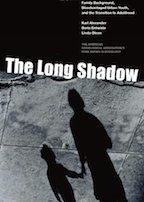 A new study by researchers at Johns Hopkins University in Baltimore finds that the American Dream is just a dream for the vast majority of American youth. The study found very low levels of economic class mobility and that the life trajectory of children is largely determined by their family background.
A new study by researchers at Johns Hopkins University in Baltimore finds that the American Dream is just a dream for the vast majority of American youth. The study found very low levels of economic class mobility and that the life trajectory of children is largely determined by their family background.
The study followed nearly 800 Baltimore schoolchildren for more than a quarter of a century beginning in 1982. After more than 30 years, the study found that the majority of students stayed in the same socio-economic class as their parents. Of the children from the lowest income groups, only 4 percent had a college degree by the age of 28. By the age of 28, 49 percent of the Black men from low-income backgrounds had been convicted of a crime and most of these were unemployed.
“A family’s resources and the doors they open cast a long shadow over children’s life trajectories,” says Karl L. Alexander, the lead author who is retiring this summer as the John Dewey Professor of Sociology at Johns Hopkins. “This view is at odds with the popular ethos that we are makers of our own fortune. The implication is where you start in life is where you end up in life. It’s very sobering.”
The study has been published in the book The Long Shadow: Family Background, Disadvantaged Youth, and the Transition to Adulthood (Russell Sage Foundation, 2014).

